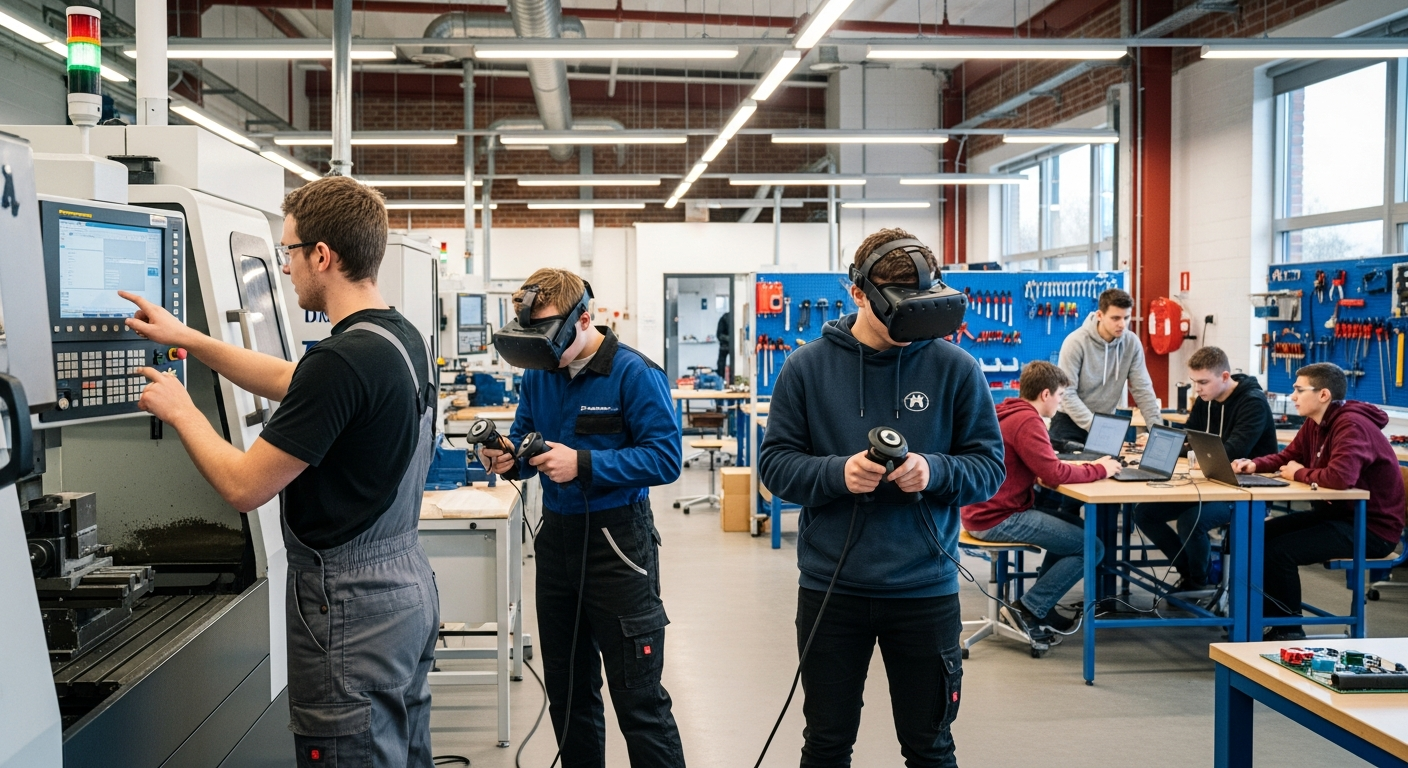Quantum-Inspired Optimization in Industrial Logistics
Quantum computing's principles revolutionize logistics optimization, even without quantum hardware. This article explores how quantum-inspired algorithms are transforming industrial supply chains, inventory management, and transportation networks. We'll delve into the practical applications, challenges, and future potential of this groundbreaking approach to solving complex logistical problems.

The Quantum Advantage in Classical Systems
Quantum-inspired algorithms draw inspiration from quantum mechanics principles such as superposition and entanglement. These concepts are translated into classical computing environments, allowing for the exploration of multiple solution pathways simultaneously. This approach enables businesses to tackle optimization problems that were previously considered too complex or time-consuming for traditional methods.
In the realm of industrial logistics, this translates to faster and more efficient decision-making processes. Companies can now optimize their supply chains, inventory levels, and distribution networks with greater precision and adaptability. The ability to consider countless variables and constraints simultaneously leads to more robust and flexible logistics strategies.
Revolutionizing Inventory Management
One of the most significant applications of quantum-inspired optimization in industrial logistics is in inventory management. Traditional inventory systems often struggle with the conflicting goals of minimizing stock while ensuring product availability. Quantum-inspired algorithms excel at balancing these competing objectives.
These algorithms can process vast amounts of data, including historical sales patterns, seasonal variations, supplier lead times, and even external factors like economic indicators or weather forecasts. By analyzing this complex web of information, quantum-inspired systems can predict demand with unprecedented accuracy and suggest optimal inventory levels across multiple locations and product lines.
Optimizing Transportation Networks
Transportation logistics present another area where quantum-inspired optimization shines. The classic “traveling salesman problem” – finding the most efficient route between multiple points – is a perfect example of where these algorithms excel. In real-world applications, this translates to optimizing delivery routes, managing fleet operations, and coordinating multi-modal transportation networks.
Quantum-inspired algorithms can consider factors such as traffic patterns, fuel costs, vehicle capacities, and delivery time windows simultaneously. This holistic approach results in more efficient routing strategies, reduced fuel consumption, and improved on-time delivery performance. For industries dealing with time-sensitive or perishable goods, this level of optimization can be transformative.
Enhancing Supply Chain Resilience
In today’s volatile global market, supply chain resilience is more critical than ever. Quantum-inspired optimization techniques offer powerful tools for scenario planning and risk management. By simulating countless potential disruptions and their cascading effects, businesses can develop more robust contingency plans.
These algorithms can quickly recalculate optimal supply chain configurations in response to sudden changes, such as supplier failures, natural disasters, or geopolitical events. This agility allows companies to maintain operational continuity and minimize the impact of unforeseen disruptions, giving them a significant competitive advantage in uncertain times.
Challenges and Future Prospects
While the potential of quantum-inspired optimization in industrial logistics is immense, several challenges remain. Integration with existing systems, data quality and availability, and the need for specialized expertise are some of the hurdles businesses face in adopting these technologies. Additionally, as the field evolves, there’s a growing need for standardization and best practices to ensure consistent results across different applications.
Looking ahead, the future of quantum-inspired optimization in logistics appears bright. As algorithms become more sophisticated and computing power increases, we can expect even more accurate predictions and efficient optimizations. The potential integration with other emerging technologies, such as IoT sensors and machine learning, promises to create even more powerful logistics management systems.
Quantum-Inspired Optimization: Key Insights for Logistics Managers
• Embrace data integration: Success hinges on comprehensive data from across your operations.
• Start small: Begin with pilot projects in specific areas before scaling up.
• Invest in training: Ensure your team understands the principles and potential of these new tools.
• Continuously refine: Regularly update algorithms with new data and learnings.
• Consider hybrid approaches: Combine quantum-inspired methods with traditional optimization techniques for best results.
In conclusion, quantum-inspired optimization represents a paradigm shift in industrial logistics management. By harnessing the power of quantum principles in classical computing environments, businesses can achieve unprecedented levels of efficiency and resilience in their supply chains. As this technology continues to evolve, it will undoubtedly play a crucial role in shaping the future of industrial logistics, offering innovative solutions to complex challenges and driving competitive advantage in an increasingly complex global marketplace.






